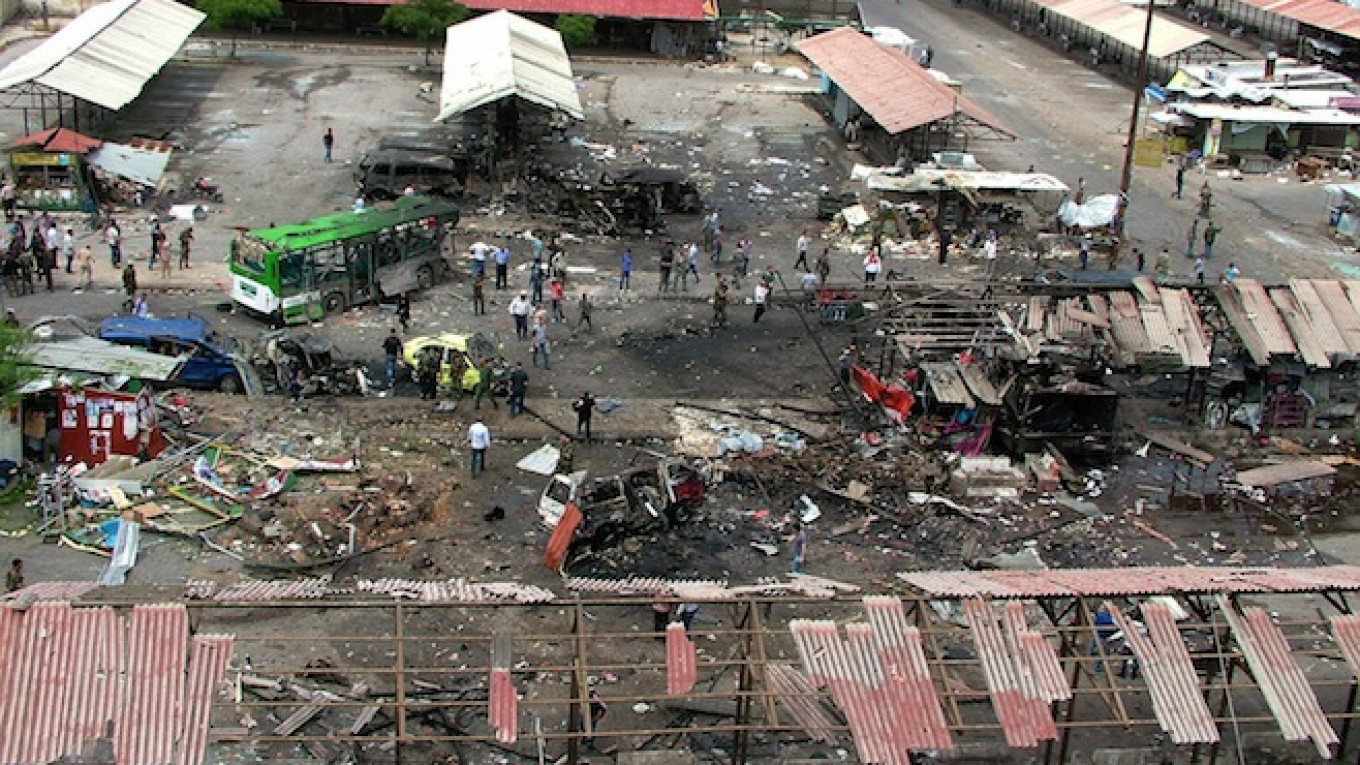The deputy head of Russia’s National Security Council, Yevgeny Lukyanov, accused the United States of operating with double standards in Syria after Washington denied reports that it agreed with Moscow to begin joint bombing of the al-Nusra extremist group, an affiliate of terror network al-Qaida in Syria.
“There are shades of national interests everywhere,” Lukyanov said. “So, this means they can understand something differently. [Here] they believe that there are ‘good terrorists’ and ‘bad terrorists,’” he said, echoing a common Russian refrain on U.S. policy in the region.
The two sides have reportedly agreed on which groups operating in the Syrian civil war are fair targets, but the issue of al-Nusra continues to divide the rhetoric between Moscow and Washington.
Lukyanov declined to comment on the possibility of unilateral Russian action against al-Nusra if Washington does not come around to the offer. Joint action was proposed openly by Russian Defense Minister Sergei Shoigu at a meeting televised on May 20.
According to Shoigu, the combined operation would have begun five days later. State Department spokesman John Kirby denied on May 20 that any agreement had been reached.
“There is no agreement for joint air strikes with the Russians in Syria,” Kirby said. However, the two sides are evaluating “proposals for a sustainable mechanism to better monitor and enforce the cessation of hostilities,” Kirby added.
A Pentagon spokesman, Navy Capt. Jeff Davis, said that no formal proposal had been received, but that cooperation remains limited to airspace safety in the crowded skies over Syria.
Russia entered the fray at the end of September. Though it claims to be attacking the Islamic State and other terror groups, such as al-Nusra, officials and observers in the West have accused Moscow of flying mainly in support of Syrian President Bashar Assad.
In this role, Russian air strikes have appeared to fall predominantly in areas controlled by what the United States and its allies classify as the moderate elements of Syria’s fractious opposition forces.
Al-Nusra and the Islamic State are terrorist organizations banned in Russia.
A Message from The Moscow Times:
Dear readers,
We are facing unprecedented challenges. Russia's Prosecutor General's Office has designated The Moscow Times as an "undesirable" organization, criminalizing our work and putting our staff at risk of prosecution. This follows our earlier unjust labeling as a "foreign agent."
These actions are direct attempts to silence independent journalism in Russia. The authorities claim our work "discredits the decisions of the Russian leadership." We see things differently: we strive to provide accurate, unbiased reporting on Russia.
We, the journalists of The Moscow Times, refuse to be silenced. But to continue our work, we need your help.
Your support, no matter how small, makes a world of difference. If you can, please support us monthly starting from just $2. It's quick to set up, and every contribution makes a significant impact.
By supporting The Moscow Times, you're defending open, independent journalism in the face of repression. Thank you for standing with us.
Remind me later.






